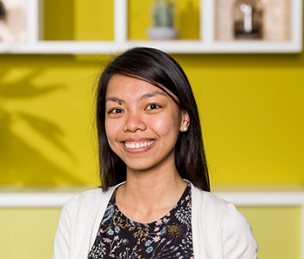Displaying 1 - 2 of 2
-
Aravena-Bravo, P., Cristia, A., Garcia, R., Kotera, H., Nicolas, R. K., Laranjo, R., Arokoyo, B. E., Benavides-Varela, S., Benders, T., Boll-Avetisyan, N., Cychosz, M., Ben, R. D., Diop, Y., Durán-Urzúa, C., Havron, N., Manalili, M., Narasimhan, B., Omane, P. O., Rowland, C. F., Kolberg, L. S. Aravena-Bravo, P., Cristia, A., Garcia, R., Kotera, H., Nicolas, R. K., Laranjo, R., Arokoyo, B. E., Benavides-Varela, S., Benders, T., Boll-Avetisyan, N., Cychosz, M., Ben, R. D., Diop, Y., Durán-Urzúa, C., Havron, N., Manalili, M., Narasimhan, B., Omane, P. O., Rowland, C. F., Kolberg, L. S., Ssemata, A. S., Styles, S. J., Troncoso-Acosta, B., & Woon, F. T. (2024). Towards diversifying early language development research: The first truly global international summer/winter school on language acquisition (/L+/) 2021. Journal of Cognition and Development, 25(2), 242-260. doi:10.1080/15248372.2023.2231083.
Abstract
With a long-term aim of empowering researchers everywhere to contribute to work on language development, we organized the First Truly Global /L+/ International Summer/ Winter School on Language Acquisition, a free 5-day virtual school for early career researchers. In this paper, we describe the school, our experience organizing it, and lessons learned. The school had a diverse organizer team, composed of 26 researchers (17 from under represented areas: Subsaharan Africa, South and Southeast Asia, and Central and South America); and a diverse volunteer team, with a total of 95 volunteers from 35 different countries, nearly half from under represented areas. This helped world-wide Page 5 of 5 promotion of the school, leading to 958 registrations from 88 different countries, with 300 registrants (based in 63 countries, 80% from under represented areas) selected to participate in the synchronous aspects of the event. The school employed asynchronous (pre-recorded lectures, which were close-captioned) and synchronous elements (e.g., discussions to place the recorded lectures into participants' context; networking events) across three time zones. A post-school questionnaire revealed that 99% of participants enjoyed taking part in the school. Not with standing these positive quantitative outcomes, qualitative comments suggested we fell short in several areas, including the geographic diversity among lecturers and greater customization of contents to the participants’ contexts. Although much remains to be done to promote inclusivity in linguistic research, we hope our school will contribute to empowering researchers to investigate and publish on language acquisition in their home languages, to eventually result in more representative theories and empirical generalizationsAdditional information
https://osf.io/fbnda -
Pizarro-Guevara, J. S., & Garcia, R. (2024). Philippine Psycholinguistics. Annual Review of Linguistics, 10, 145-167. doi:10.1146/annurev-linguistics-031522-102844.
Abstract
Over the last decade, there has been a slow but steady accumulation of psycholinguistic research focusing on typologically diverse languages. In this review, we provide an overview of the psycholinguistic research on Philippine languages at the sentence level. We first discuss the grammatical features of these languages that figure prominently in existing research. We identify four linguistic domains that have received attention from language researchers and summarize the empirical terrain. We advance two claims that emerge across these different domains: (a) The agent-first pressure plays a central role in many of the findings, and (b) the generalization that the patient argument is the syntactically privileged argument cannot be reduced to frequency, but instead is an emergent phenomenon caused by the alignment of competing pressures toward an optimal candidate. We connect these language-specific claims to language-general theories of sentence processing.

Share this page